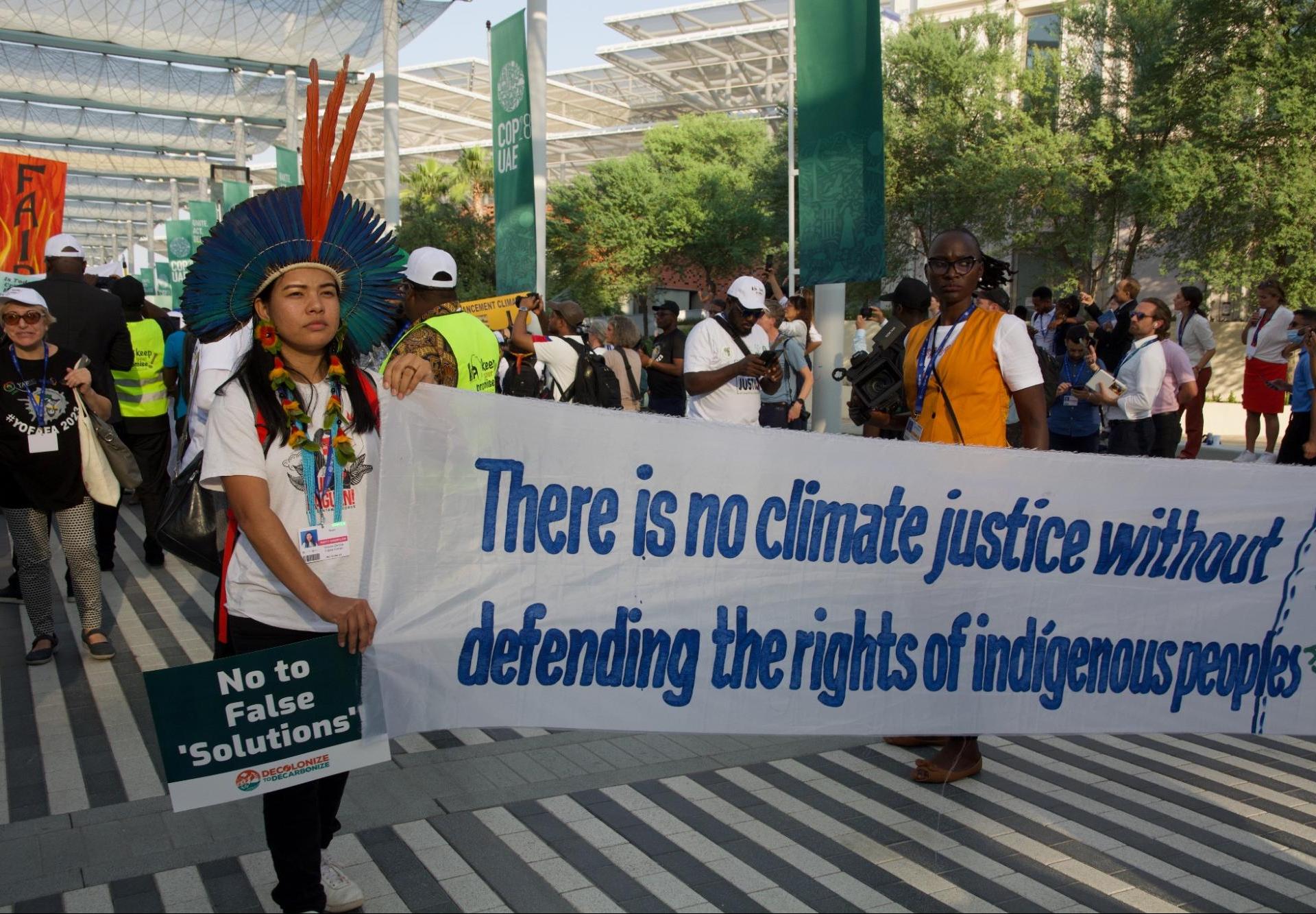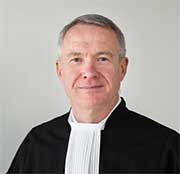The shepherd of the sea guiding small boats home to safety in South Africa | Environment
Hondeklip Bay, South Africa – Before day breaks on a cloudy morning in Hondeklip Bay, a small fishing village in South Africa’s semi-arid Namaqualand region, Patrick Rulph rushes out of his front door in track pants, a loose-fitting hoodie and a dark cap.
The 61-year-old moves with urgency as he makes his way down the 200-metre-long dirt road to the beach, hoping to catch the fishers before they head to sea.
“They don’t go to sea at set times, and I want to see exactly how many fishers are out,” says Rulph, with a knowing smile that reflects the pride he takes in his work monitoring and guiding the small boats that go out to sea.
On the shore, bags holding fishing gear and lunches sit at the high watermark on the sand. The fishers try and warm themselves in pockets of defiant sunlight while their fellow crew members arrive one by one.
Ruins of the old fish canning factory and the remains of a jetty that was destroyed by a storm years ago are evidence of a once-booming fishing industry that employed nearly anyone in the village.
Across the road from the ruins, five orange-coloured boats lie in front of a two-storey, weather-worn building, with a sign that reads: “Hondeklip Bay Small Vessel Safety Monitoring Center”, or VMS, where Rulph spends most of his days.
The VMS has two rooms: a first-floor office that contains the monitoring and communication equipment he uses and a small room on the ground floor, which houses orange electronic devices called locators that help track vessels out at sea. Rulph grabs a few locators from the room and hurries back down to the various fishing crews on the beach, handing them out and making meticulous notes in a pocketbook he carries with him.
He makes sure all the boats that leave in the morning return, and when necessary, he guides them home using the Small Vessel Monitoring System, which uses mapping software to track the locators.
As the only person working at the safety centre, Rulph has become indispensable to the small-scale fishers of Hondeklip Bay. Even after a loss of funding meant he stopped being paid to do the job this year, he has continued out of a strong sense of duty to the community.
At the shore, the crews of two or three men assemble, before rowing out to their anchored ski-boats on worn but sound dinghies. After boarding, they fire up their outboard motors and make their way out to sea, skipping on the incoming waves as they leave the harbour mouth one by one.
Hondeklip Bay has a population of about 540 people, according to the latest census in 2022. Rulph estimates that the size of the community is much larger, based on information he has seen at the local clinic, but he maintains that the community remains very close-knit.
Gainful employment is hard to come by. While some residents work for companies that reprocess overburden from diamond mines, most others work for low-paying municipal projects.
Daniel Ruyter, one of the members of the Hondeklip Bay Small-Scale Fishing Cooperative, says that despite only having 27 members, the co-op provides some form of income to 90-100 people. At the height of the annual snoek fishing season, over the Easter period, travelling fishers from all over the Western Cape visit Hondeklip Bay “chasing the snoek”. During their stay, they rent accommodation from community members and many more are given odd jobs such as cleaning fish.
Hondeklip Bay
Hondeklip Bay was established in the mid-1800s to transport copper ore by sea from its natural harbour to other towns in the Northern Cape. Rulph’s grandparents moved there in the early 1900s to work in the commercial fishing industry. His father was a fisherman and his mother worked in the Namaqua Canning Company’s fish factory.
When Rulph grew up during apartheid, he was classified as “coloured”. The racial discrimination was hard to miss, he recalls. While white residents had electricity and piped water in their homes, non-white residents could only collect drinking water from a reservoir in the village on Mondays, Wednesdays and Fridays. On Tuesdays and Thursdays, they could only access brackish water.
“My friends and I saw it as a chance to earn pocket money. We delivered buckets of water for our neighbours, and they would give us a few cents that we would use to buy sweets and chocolates,” he laughs.

Conditions improved after Nelson Mandela’s African National Congress was voted into power in 1994, with piped water as well as electricity reaching all residents by 1996. Yet, 30 years later, Hondeklip Bay still has no grocery store, petrol station or high school, and the village remains accessible by gravel roads that stretch through past decommissioned diamond mines for tens of kilometres.
Rulph decided to quit high school when he was 16 to start working. After spending one season at the same canning factory as his mother, he began working for diamond companies, first De Beers and then the Trans Hex Group, when he was retrenched after 20 years. Due to the decline in the diamond industry and the collapse of the commercial fishing industry at home, he sought employment in Cape Town but returned after two years.
Fortunately, the Hondeklip Bay VMS and the monitoring system were donated to the village by the Namaqua District Municipality in 2014 and a post was advertised. Rulph got the job.
In the VMS office, which looks out over the ruins of the canning factory, he has a portable short-range radio, a fixed long-range radio, and two screens on which he can see satellite images of as much of the coastline as he wants to see along with the locations of each of the boats carrying the orange devices.
On days when the coastline is covered in dense fog, Rulph has to keep his eyes on his screens, making sure that all the boats are together. At the start, it was very stressful, as the fog tends to interfere with the satellite imagery, but he has since learned to deal with the quirks of the system.

Rulph recalls one very misty day that could have ended in a disaster. An old fisher went to sea with a young crew member, and when they decided to head home, it was so misty that they ended up arguing about where they were. The young crew member won the argument and thinking they were north of Hondeklip Bay, they headed south. After a while, the old fisher recognised a set of rocks along the shore and realised that they had gone too far south. They had nearly run out of fuel so they headed out into water that was deep enough for them to safely drop anchor and waited for the fog to clear.
Meanwhile, the other fishers that were out with them assuming they had made it home safely were surprised to find them not there. Members of the community built a huge bonfire on the beach hoping that the fishers would see the light from the sea and find their way home.
“I contacted the police and sent two boats with tracking devices out to go and look for them. When the mist cleared at about 11:30pm the old fisher saw that the boats were looking for them, but they didn’t have any way of drawing attention to themselves,” said Rulph.
When the “lost” fishers saw that the rescue boats were heading back home, they decided to row back to Hondeklip Bay.
“They reached the harbour mouth at about 4:30am, they fired up the motor and made it safely to shore. The community was still on the beach when they returned,” says Rulph, with a sense of delayed relief that the worst outcome was avoided.
Reflecting on that situation, Rulph says: “I realised that when the fishers are all at sea together, if a boat leaves, they just assume that it made it safely home, but that isn’t always the case. For that reason, I make sure that I know exactly how many boats go out every morning.”
‘We are making do’
In the decade that Rulph has worked at the safety centre, there have been no instances of fishers drowning at sea in Hondeklip Bay, a statistic he is simultaneously thankful for and proud of.
The Namakwa District Municipality paid Rulph’s salary through an annually renewed contract. But in 2024, his contract was not renewed because of a lack of funds. There is some talk of third parties attempting to secure funding for his position, but there are no concrete plans as yet, he says.

At home, Rulph is the sole breadwinner in his household. His wife and two daughters depend on his state pension. Yet, with the optimism that reveals a deep acknowledgement of the resourcefulness of his community, he says: “We aren’t hungry, we aren’t cold. We are making do.”
And even without a salary, over the last few months, he has continued to perform the role he was once paid to do, in service of the community he has been a part of for six decades.
“Patrick’s work is important. He does it well. We don’t have to ask him to do it, or look for him, he’s always ready,” says Daniel Ruyter, who has known Rulph nearly all his life and has been his friend for decades.
Ruyter has been fishing for over 50 years and knows the surrounding coastline better than almost anyone. Yet he says that even he has been in situations where, due to the thick fog, he got lost while trying to make his way home, instead ending up in a different bay.
“We don’t all have GPS systems. And without the radios, our only means of communication from the sea is our mobile phones. If something out there happens you have to hope that you can access the network,” he said.
Indicating the value of Rulph’s dependability and the value of his work, Ruyter says: “Now we have radios, and we know that if we need help, Patrick will be ready to help us.”
Rulph’s service-oriented approach extends beyond just his profession, and his neighbours say it’s something that comes naturally to him. Ruyter says that when catches are good during the snoek season, Rulph goes around to the fishers asking them to donate some fish to poorer families in the community, before distributing the donations himself.

It’s the same compassion to help those in need that guides his tireless unpaid work at the VMS.
“I understand the risks and the dangers of going to sea,” Rulph says in a lowered voice that conveys the seriousness with which he views his work. “Tomorrow someone could drown just because they didn’t have a locator and there was no one to guide them in. It would be a life that could have been saved.”
Fishing is the only gainful employment in the village, he says, and there are no other vocational opportunities for young men other than to become fishermen.
“My son is also a fisherman. Just as I care about my son, there are other parents that feel the same way about their children,” Rulph adds.
For as long as he is able, he is committed to continuing to shepherd Hondeklip Bay’s fishers home, making sure none get left behind.
“I believe if I bless others, then I will be blessed as well,” he says with a satisfied smile.
Reporting for this story was supported by the Pulitzer Center.
Check out our Latest News and Follow us at Facebook
Original Source






